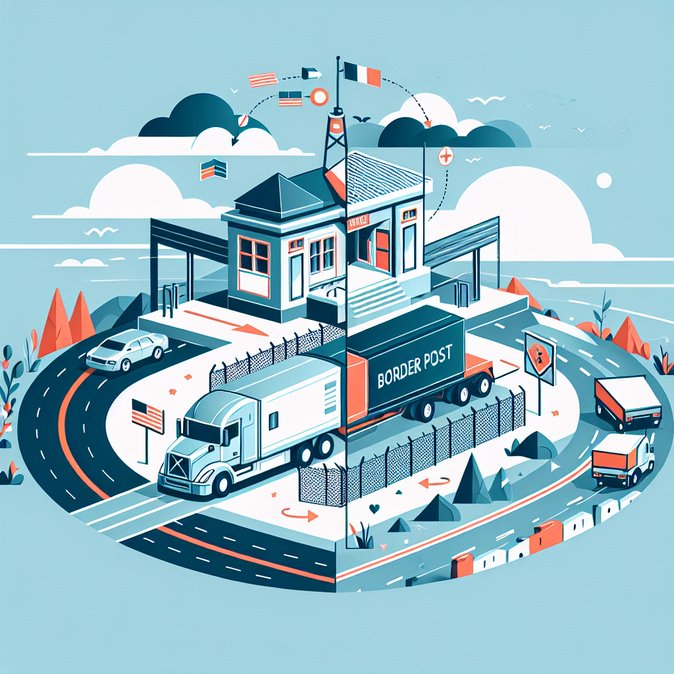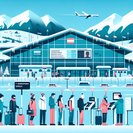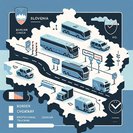
Austria’s Interior Minister Gerhard Karner met his Slovak counterpart Matúš Šutaj-Eštok at the Kittsee–Berg border crossing at noon on 24 November 2025 to map out the next phase of their joint border-security plan.
Both ministers pointed to a dramatic collapse in irregular entries along the eastern flank of Austria: only about 180 apprehensions were recorded in Burgenland in October 2025 compared with almost 15,000 in October 2022. Karner said the two countries will now ‘shift from fixed controls to a hybrid model’ that combines spot checks at the frontier with highly mobile patrols up to 15 kilometres inside each country. The aim is to stop smugglers who have been diverting routes from Hungary via Slovakia, then into Austria.
![Austria and Slovakia Agree on Tighter Joint Patrols to Keep Irregular Migration Low]()
Under the new concept, mixed Slovak–Austrian teams supported by drones and number-plate-recognition vans will fan out on both sides of the border. Data sharing between Vienna’s Police Intelligence Service and Bratislava’s National Crime Agency is to be upgraded to live mode by March 2026. Karner also used the photo-op to press for faster EU-level reform, arguing that asylum procedures should be processed in safe third countries to ease pressure on the Schengen area.
For businesses the announcement matters because temporary controls at Austria’s borders with Slovakia (and with the Czech Republic, Hungary and Slovenia) slow down commuter and freight traffic. Although the ministers declined to set an end-date, officials hinted that some fixed checkpoints could be dismantled after 15 December 2025 if migration flows remain low. Mobility managers should therefore plan for sporadic, rather than constant, delays at Kittsee, Berg and Jarovce in the first quarter of 2026 and keep drivers’ documentation up to date for random inspections.
Labour-short Austrian sectors—particularly manufacturing and warehousing in Burgenland—welcomed the prospect of lighter congestion but urged both governments to guarantee a predictable regime so that cross-border staff can continue commuting without lengthy detours.
Both ministers pointed to a dramatic collapse in irregular entries along the eastern flank of Austria: only about 180 apprehensions were recorded in Burgenland in October 2025 compared with almost 15,000 in October 2022. Karner said the two countries will now ‘shift from fixed controls to a hybrid model’ that combines spot checks at the frontier with highly mobile patrols up to 15 kilometres inside each country. The aim is to stop smugglers who have been diverting routes from Hungary via Slovakia, then into Austria.

Under the new concept, mixed Slovak–Austrian teams supported by drones and number-plate-recognition vans will fan out on both sides of the border. Data sharing between Vienna’s Police Intelligence Service and Bratislava’s National Crime Agency is to be upgraded to live mode by March 2026. Karner also used the photo-op to press for faster EU-level reform, arguing that asylum procedures should be processed in safe third countries to ease pressure on the Schengen area.
For businesses the announcement matters because temporary controls at Austria’s borders with Slovakia (and with the Czech Republic, Hungary and Slovenia) slow down commuter and freight traffic. Although the ministers declined to set an end-date, officials hinted that some fixed checkpoints could be dismantled after 15 December 2025 if migration flows remain low. Mobility managers should therefore plan for sporadic, rather than constant, delays at Kittsee, Berg and Jarovce in the first quarter of 2026 and keep drivers’ documentation up to date for random inspections.
Labour-short Austrian sectors—particularly manufacturing and warehousing in Burgenland—welcomed the prospect of lighter congestion but urged both governments to guarantee a predictable regime so that cross-border staff can continue commuting without lengthy detours.










